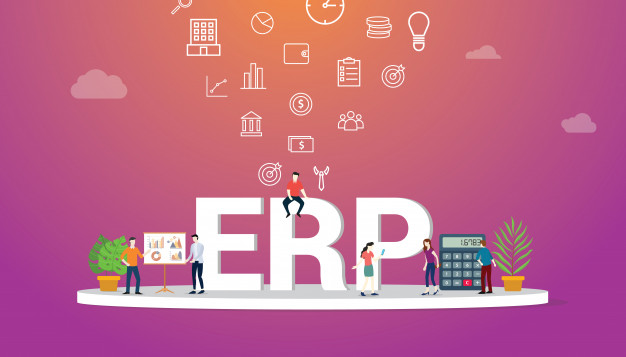Basic ERP (Enterprise Resource Planning) modules system
4 Mins Read
Published on: 02 May 2020
Last Updated on: 13 November 2024

toc impalement
ERP Modules stands for Enterprise resource planning modules system. It is a managing system that manages everything happening in the organization. Starting from the employee paycheck to the business deals and transactions. Not a single is left uncovered in this module.
When your organization reaches a certain level then no ordinary modules can guarantee the perfect functioning of the business. You need to have a system that will monitor down every step of the organization. This where the ERP module system comes into play.
ERP module helps to provide support in managing the various departments of the enterprise, and function via the centralized application.
Different types of ERP modules system
As time has progressed, the usage of management tools has also increased. There have been many companies that have been surfaced up recently, that provide their assistance in management.
Some of the submodules that can be found in the ERP modules system:
1. Human resource management
The human resource management module works like charm for the HR team that deals with human resources. This module helps the organization to manage the employee’s data, track their performances, attendance, skills, and other employer’s aspects.
![]()
The most important part of this module is the payroll system. It manages all the aspects of the salaries and makes sure that everybody is getting their paycheck at the right time. It can also include all the overhead expenses as well.
2. Inventory modules
Inventory modules manage the inventory management system. All the products and items are tracked in these modules. Each item is given a unique number that acts as an identity card for the products. With the help of those unique serial numbers, you can easily track down the stocks of that product.

For example, your company sells tea bags. Then each bag will be given a unique number and it will be stored in the database. This information may contain the stock number, order number, and the remaining tea bags. With the help of these data, you can easily maintain a stock level. Managing inventory has come a long way with digital solutions, so nowadays we have a plethora of software specialized for various purposes. For example, quartermaster systems used by the police.
3. Sales module
The sales process is all about keeping track of the number of sales that have been made in the past month and how the improvement is made in the current month. It literally looks after the sales queries, inquiries analysis, sending quotations, invoices, proper taxation, and tracking down all the pending orders.

These all processes are managed by the Sales module and it creates opportunities for future lead generation.
4. Purchase module
As the name suggests, this module deals with all kind of purchases and keep track of everything. It keeps track of all the material required by the organization. The purchase module is all about keeping track of all the vendors that are responsible for bringing in new products and items, list-making, item linking, sending quotations, tracking down the purchases and keeping an eye for its delivery, and complete a report on the whole process.

The purchase module works with the inventory modules to keep the track of the overflow and the underflow of the module.
5. Finance module
This module is in charge of managing the whole inflow and outflow of the transaction. Every detail regarding any kind of transaction is stored up by the finance modules.

This module keeps a tab on account-related transactions like balance sheets, expenditures, budgeting, bank statement, receipts, and tax payments. Everything is covered in this module. In addition, it also helps you to backtrack the cost. You are just one click away from getting all thy relevant information.
6. CRM
CRM stands for Customer relationship management. This department specializes in boosting sales by giving customers the best shopping experience. CRM teams are the only people that are in direct contact with the customers and only they know better about the audience’s mood swings.

CRM tools help to manage every data related to the customers. Starting from their communication history, call, meeting, and purchases. These data came in very handy to pinpoint customer behavior and helps them to formulate a plan to retarget the audiences.
7. SCM
SCM stands for supply chain management, which controls the flow of the goods and product from the manufacturer to the consumer and from the consumer to the manufacturer.
Usually, this supply chain management works like connecting small chains together. These chains can be the manufacturer, whole seller, retailer, customer, and finally to consumers. SCM involves demands and supply simultaneously. If the demand increases so does the supply and vice versa.
Today many companies have been saved by the implication of the ERP modules. ERP modules not only manage all the workings of the enterprise but also helps to identify the flaws.
Wrapping it up
It may happen that you are all good without the ERP modules in your business. But that does not mean that you can neglect the positive effect of the ERP modules. Implementation of the ERP modules in the company can bring a new change in the company. It can catalyze the efficiency of your business in a positive way.
ERP module is a vast module that covers all the happening in the enterprise. It does have a small section of the submodules that look after the individual section of the company. I have already discussed then above.
For more relevant content you can visit our homepage and at the same time, you can subscribe to our newsletter to get daily updates of the latest content. But before that do comment down below on what you think about the ERP modules and how it has improved your business.


















Comments Are Closed For This Article